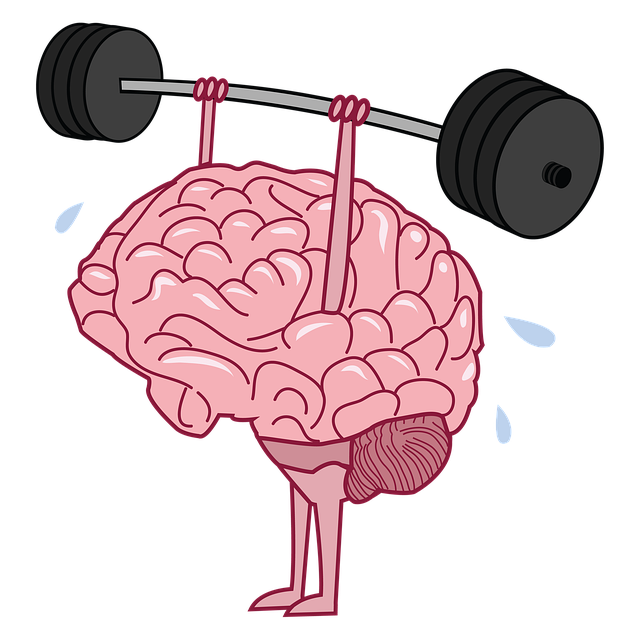Mental wellness is a critical aspect of life for everyone, but individuals with Lafayette Autism Spectrum Disorder (ASD) face unique challenges due to sensory sensitivities, communication differences, and social interactions. To address this, personalized interventions like Crisis Intervention Guidance and Stress Management Workshops are essential. Journaling emerges as an effective therapeutic tool for ASD individuals, offering a safe space to explore emotions, reduce stress, and enhance self-awareness through emotional comprehension. Creating supportive environments and incorporating compassion cultivation practices further improve mental wellness. Techniques include stream-of-consciousness writing and specific prompts, enabling tracking of emotional states over time and developing tailored strategies for effective mental wellness management. Regular journaling aligns with mind over matter principles, fostering resilience and a deeper understanding of one's emotional landscape.
Mental wellness journaling offers a powerful tool for individuals with Autism Spectrum Disorder (ASD) to navigate their emotional landscape. This article guides you through the transformative journey of using journaling as therapy, addressing the unique needs of those on the ASD spectrum. We explore the impact of mental wellness on ASD, highlighting the benefits of expression through writing. Learn how to create a safe space, employ effective techniques, and track progress to enhance resilience. Discover how Lafayette Autism Spectrum Disorder Therapy can be augmented by this simple yet profound practice.
- Understanding Mental Wellness and Its Impact on Individuals with Autism Spectrum Disorder (ASD)
- Benefits of Journaling as a Therapeutic Tool for Emotional Expression
- Creating a Supportive Environment: Setting Up Your Journaling Space
- Effective Techniques for Capturing Thoughts and Emotions in Your Journal
- Tracking Progress, Celebrating Achievements: Using Journaling to Foster Resilience
Understanding Mental Wellness and Its Impact on Individuals with Autism Spectrum Disorder (ASD)

Mental wellness is a vital aspect of overall well-being, encompassing emotional, psychological, and social health. For individuals with Autism Spectrum Disorder (ASD), navigating mental wellness can be uniquely challenging due to the diverse nature of their experiences and cognitive processing differences. ASD often presents with varying levels of sensory sensitivities, communication unique to each person, and distinct social interactions, which can significantly influence their mental wellness journeys.
Understanding the impact of ASD on mental wellness requires recognizing that individuals with ASD may face unique stressors related to social situations, changes in routines, or unexpected sensory stimuli. Lafayette Autism Spectrum Disorder Therapy emphasizes the importance of tailored interventions, such as Crisis Intervention Guidance and Stress Management Workshops organized by healthcare providers with cultural competency training. These initiatives aim to empower individuals with ASD and their families with effective coping strategies, fostering a sense of resilience and improved mental wellness.
Benefits of Journaling as a Therapeutic Tool for Emotional Expression

Journaling has emerged as a powerful therapeutic tool, offering individuals a safe and private space to explore their emotions and experiences. For those with conditions like Lafayette Autism Spectrum Disorder (ASD), journaling can provide an accessible means of expression and self-reflection. The act of writing down thoughts and feelings allows for better emotional comprehension and management, which is particularly beneficial in mitigating stress and anxiety. By engaging in this practice, individuals can learn to identify triggers, process complex emotions, and develop healthier coping mechanisms.
Moreover, journaling encourages introspection, fostering a deeper understanding of one’s thoughts and behaviors. This self-awareness is crucial for personal growth and can significantly contribute to burnout prevention strategies for healthcare providers, who often face high-stress environments. As a form of stress management workshops organization, journaling provides an effective, low-cost method to reduce stress levels and enhance overall mental wellness, making it a valuable addition to any self-care routine.
Creating a Supportive Environment: Setting Up Your Journaling Space

Creating a supportive environment is a vital step in establishing an effective journaling practice for mental wellness. Your journaling space should be a haven where you feel safe and comfortable, especially if you’re navigating challenges like Lafayette Autism Spectrum Disorder Therapy. Consider personalizing your area with items that inspire calmness and encourage expression—a soft blanket, soothing scents, or meaningful artifacts can all contribute to a nurturing atmosphere.
Incorporating compassion cultivation practices into this setup can further enhance the process. By fostering an environment of kindness towards yourself, you’re taking a proactive step in building inner strength development. This practice is especially beneficial for mental health professionals who often deal with complex cases; risk management planning reminds us to prioritize self-care and maintain healthy boundaries as we tend to others’ well-being.
Effective Techniques for Capturing Thoughts and Emotions in Your Journal

Journaling is a powerful tool for self-reflection and emotional regulation, especially for those navigating mental health challenges like Lafayette Autism Spectrum Disorder (ASD) Therapy clients. Effective techniques involve capturing thoughts and emotions with clarity and depth. One method is to write freely, allowing thoughts to flow without editing, a practice known as stream-of-consciousness writing. This can help uncover hidden feelings and perspectives.
Additionally, incorporating specific prompts can enhance the journaling experience. For instance, asking yourself about triggers, coping mechanisms, or even planning future actions related to resilience building or depression prevention can provide structure. Using these strategies, individuals can track their emotional state over time, identify patterns, and develop effective strategies for managing mental wellness—all valuable skills, especially when paired with listening to a Mental Wellness Podcast Series Production tailored to their needs.
Tracking Progress, Celebrating Achievements: Using Journaling to Foster Resilience

Tracking your progress through journaling is a powerful tool for fostering resilience, especially when navigating challenges like Lafayette Autism Spectrum Disorder Therapy. By regularly documenting your thoughts, feelings, and experiences, you create a tangible record of your mental wellness journey. This allows you to clearly see how far you’ve come, identifying patterns and strengths that contribute to your overall well-being. Celebrating achievements, no matter how small, becomes more accessible when you have this detailed history.
This practice aligns with the fundamental mind over matter principles of self-care practices. It empowers you to take an active role in managing your mental health by providing a safe space for expression and reflection. Through journaling, individuals can develop a deeper understanding of their emotional landscape, fostering resilience that can be applied to various aspects of life.
Mental wellness journaling can be a transformative practice for individuals with Autism Spectrum Disorder (ASD), offering a safe space for emotional expression and self-reflection. By creating a supportive environment and employing effective techniques, those in Lafayette seeking autism spectrum disorder therapy can harness the power of journaling to track progress, build resilience, and cultivate a deeper understanding of their mental wellness. This holistic approach encourages individuals to navigate their emotions, celebrate achievements, and foster overall well-being, making journaling an invaluable tool in their therapeutic journey.














